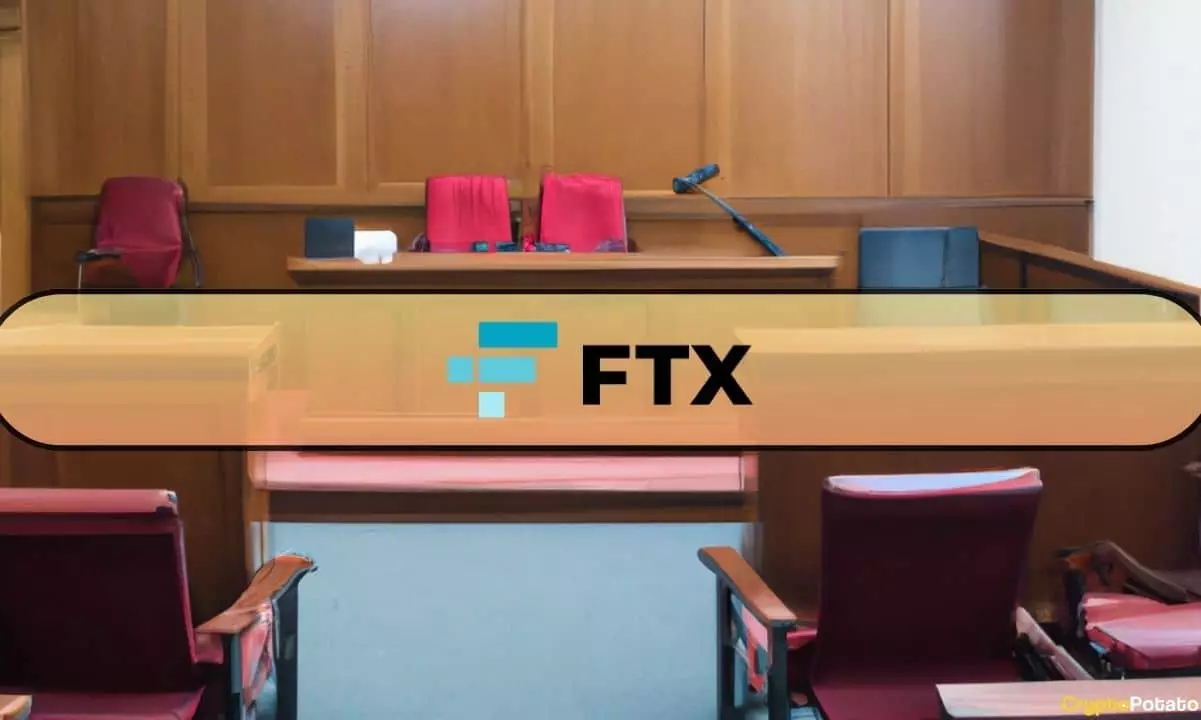FTX, once a titan in the cryptocurrency arena, now stands as a symbol of corporate failure and ethical misconduct. Its latest move—seeking court approval to restrict payouts to creditors in 49 nations—raises profound concerns about the future of international financial justice, especially when driven by an organization teetering on the brink of bankruptcy. Far from being a neutral legal maneuver, this strategy exemplifies a ruthless prioritization of legal compliance over moral responsibility and shows a blatant disregard for the rights of ordinary investors who believed in the promise of decentralization and financial innovation.
What makes this approach particularly unsettling is its blatant targeting of Chinese users, who comprise a staggering 82% of the displaced claim value. These are individuals who, despite operating within a complex regulatory environment, assumed their investments would be protected in the event of a platform collapse. Instead, FTX’s proposal seeks to classify entire jurisdictions as “potentially restricted,” effectively cutting off millions from their rightful claims under the guise of legal compliance. Such a unilateral decision not only erodes trust but also chips away at the very principles of fairness and investor protection that should underpin any financial system.
Legal Formalities Over Morality: The New Norm in Crypto Collapse Management
FTX’s plan hinges on an elaborate legal process: claims from restricted jurisdictions will be labeled “disputed,” pending further legal opinions. If, after due diligence, distributing funds appears illegal in certain areas, affected creditors will be faced with a stark choice—accept the forfeiture of their claims or file objections within a narrow 45-day window. The implications are profound: a person in China or Russia, who thought they might recover part of their investment in good faith, could find their assets permanently lost—simply because FTX deemed it legally inconvenient.
This method exposes a dangerous precedent—corporate entities replacing moral obligation with legal technicalities. It’s a clear rejection of the basic ethics of restitution, especially during times of financial distress. Instead of exploring fair solutions or offering alternative dispute resolutions, FTX seems willing to forgo billions owed to users merely because local laws complicate payout processes. This is not just legal strategy; it is a blatant abandonment of responsibility.
Societal and Ethical Ramifications: The Cost of Commercial Ruthlessness
The fallout from FTX’s aggressive stance reveals an underlying moral crisis. Many affected users, particularly in jurisdictions with tight cryptocurrency regulations, see themselves as victims betrayed by a platform that once promised transparency and security. Their outrage underscores a fundamental societal question: should profits and legal shielding override the justice owed to ordinary people?
Critics argue that FTX’s approach underscores a disturbing trend—institutions prioritizing legalism at the expense of moral accountability. This is a betrayal of the public trust, especially when the funds in question may constitute the life savings of small investors or vulnerable nations recently embracing crypto as a path toward financial inclusion. The idea that legal technicalities can be weaponized to deny rightful claims smacks of exploitation, reinforcing a harsh reality: in the world of corporate collapse, the powerful often retreat behind legal shields, leaving the small investor to suffer the consequences.
Aligning Corporate Ethics with Responsible Leadership
While FTX’s bankruptcy and subsequent moves reveal profound corporate misconduct, this crisis also highlights a broader failure of leadership rooted in shortsighted greed and a profound disconnect from ethical governance. A responsible approach would have prioritized fair treatment of all creditors, regardless of their geographic location, especially in a digital age where borders are permeable and financial inclusion is critical.
This situation calls for a reconsideration of corporate accountability within the crypto sector, emphasizing that financial innovation must not come at the expense of moral integrity. Leaders in this space should champion transparency, fairness, and the right to recovery for all users—not just those in jurisdictions with lenient laws. This isn’t merely a matter of legal compliance but an ethical obligation to uphold trust, especially when dealing with cross-border investors who seek only fair treatment amidst a tumultuous economic landscape.
In sum, FTX’s latest gambit underscores the darker side of corporate collapse—where legal stratagems are employed to sideline victims, and financial tragedy becomes a tool for expediency rather than justice. It’s a wake-up call for the industry to recalibrate, placing integrity above legal maneuvering, and striving to restore faith in a sector marred by greed and neglect.

